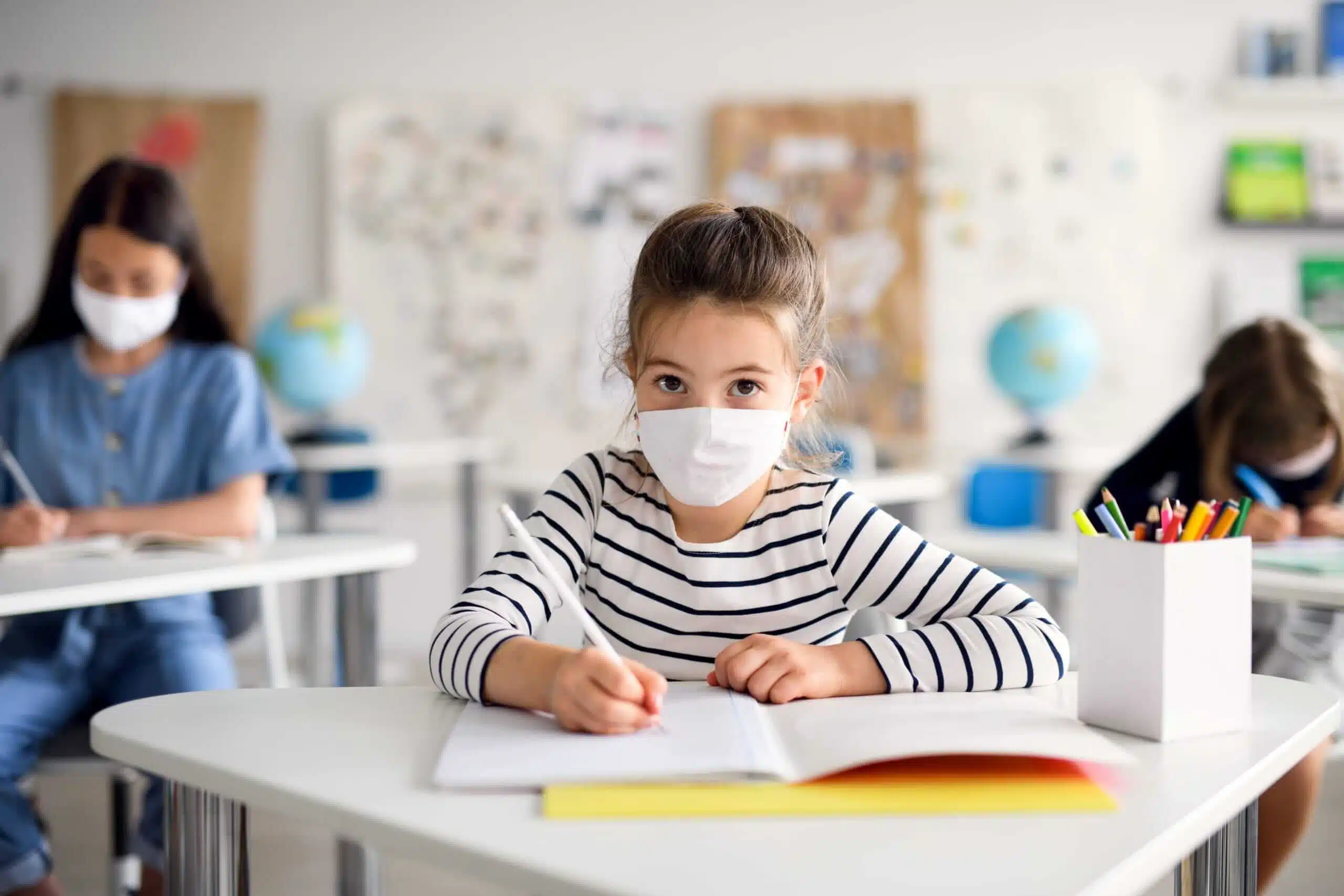As schools start to reopen, your child may have many questions about their school year and what it will look like. Starting a conversation with them can help ease worry, clear up confusion and prepare them for a safe semester. We’ve rounded up our favorite tips to help parents and loved ones discuss school reopening with their children.
1. Keep in mind your child’s age
The conversation will look different depending on the age of the child. Younger children will have different concerns and comprehension surrounding school reopening than older children will. It’s important to keep the conversation age appropriate.
With younger, elementary school students, keep the discussion brief and include simple information. Give them facts while providing reassurance. You can even provide examples to help remind them how they can keep themselves safe and healthy.
Middle school aged children are often more vocal about their worries and concerns. They may question their safety and are more likely to imagine worst-case scenarios. Help clarify and separate reality from rumors by sticking to the facts and explaining how their school is setting guidelines to keep them safe.
With high school teens, you can discuss details of school reopening and school safety more in depth. They will have a better understanding about what is going on and may benefit from reassurance and encouragement about the transition as well as reminders to use infection prevention measures. If they have questions, respond honestly and with factual data as best as you can.
2. Remain calm
When you discuss school reopening with your child, it is important to keep a calm demeanor. Children will often look to their parents for reassurance and can react to their parents’ reactions. Be aware of your body language and the way you speak around your child as they are sponges for information and emotion.
3. Allow their questions to guide the conversation
Going back to school this year is going to look very different. Your child may have many questions about the changes. Let those questions guide the conversation and allow them to voice their concerns and fears. Listen, validate their feelings, and answer their questions as best as possible.
4. Be honest with what you know and don’t know
As their questions arise, you may feel confident answering most, but there may be others that you’re not sure about. It’s ok if you don’t have all of the answers and it’s important not to pretend that you do. However, it is important to correct any misinformation and help ease fears.
5. Reinforce cleanliness
With younger children especially, it’s important to reinforce the importance of safety measures for infection prevention. Younger children may not understand what it means to return to school with social distancing guidelines. By reminding them of healthy habits, you can help them understand why these changes are happening and empower them to protect their health as well as the health of the whole family. Remind your children about the importance of social distancing, consistent mask use and routine hand washing.
6. Help them think positively
After a year of only seeing their friends and teachers through a screen, your child most likely has a lot to look forward to. Help them prepare for their school reopening by reminding them of the positives. Ask them what they are most excited about whether it’s seeing their friends in-person, participating in school activities or even getting back into a normal school routine.
7. Be patient and give them time to adapt
It’s likely that students will not return to the same school environment that they knew before the pandemic. Many school policies, schedules and routines will be different to accommodate COVID-19 safety guidelines, and everyone is learning to adapt including teachers, students and parents. It’s important to demonstrate flexibility, understanding and acknowledge that this is going to be a big change for everyone. Routines as well as goals and expectations you have for yourself and your children may need to change this school year. As parents, it’s important to help your children structure or restructure their time to help them establish a new routine. Goal setting can be a powerful tool to build confidence and celebrate small wins.
8. Prepare for emotional reactions
The way each child reacts to schools reopening will be different and may vary depending on age. It may be especially difficult for younger children to transition back to in-person instruction. Unlike summer vacation, quarantine exceeded three months and many children have grown used to being home with their parents or caregivers. Going back to in-person learning can trigger feelings of separation anxiety. To ease those feelings, keep drop-off goodbyes brief, let them know the time apart is only temporary, leave notes in their lunchbox and even enlist help from their teachers.
Middle school and high school students may struggle to adjust to the new routine or may grieve missed milestones. Incoming middle schoolers and high school freshman are not only transitioning to a covid-adapted school, but also to a completely new school. These changes can be stressful, especially when compounded with a new route to school, new peers, and new bell schedule. Eighth graders and high school seniors may wonder if they get will get the traditional events that come with graduation or being an upper classman. Not knowing if they will get school dances, assemblies, school trips, prom, and even graduation can be difficult for students to grapple with.
At any age, change can be stressful. While you may not be able to control or predict every complexity and challenge of your children’s school reopening, parents can significantly help their children understand and adapt.
To learn more about Clear Behavioral Health, including our teen mental health and substance use outpatient programming, contact our expert clinical team today.

